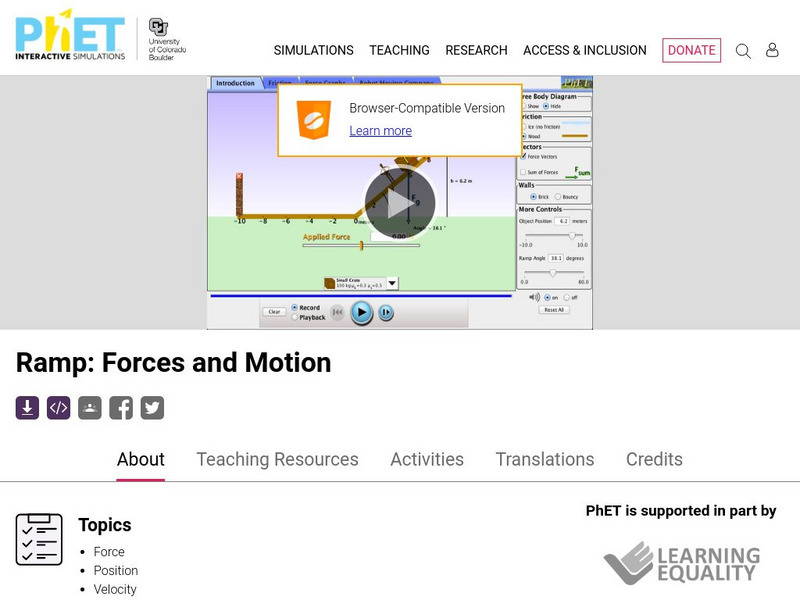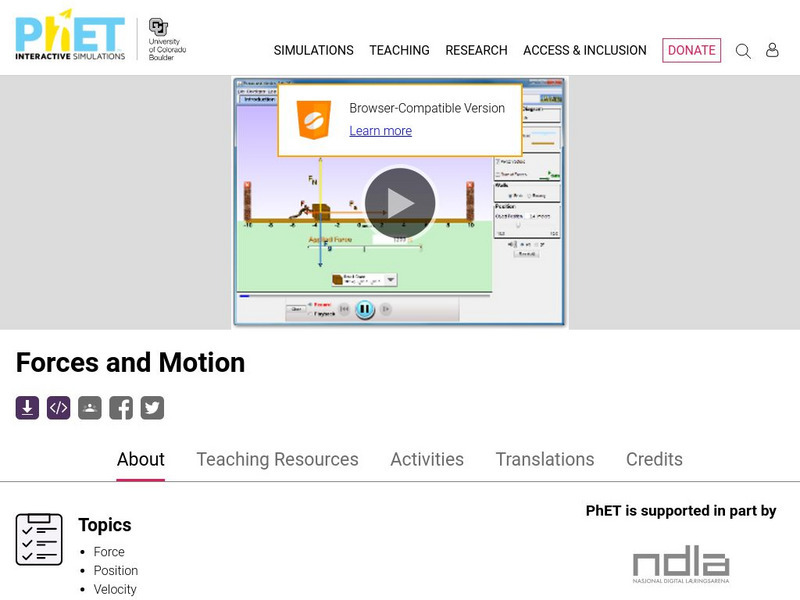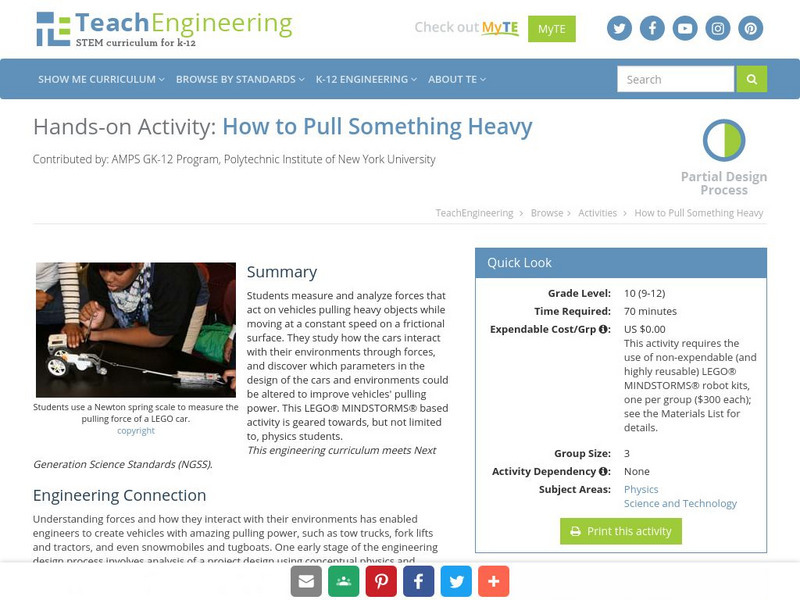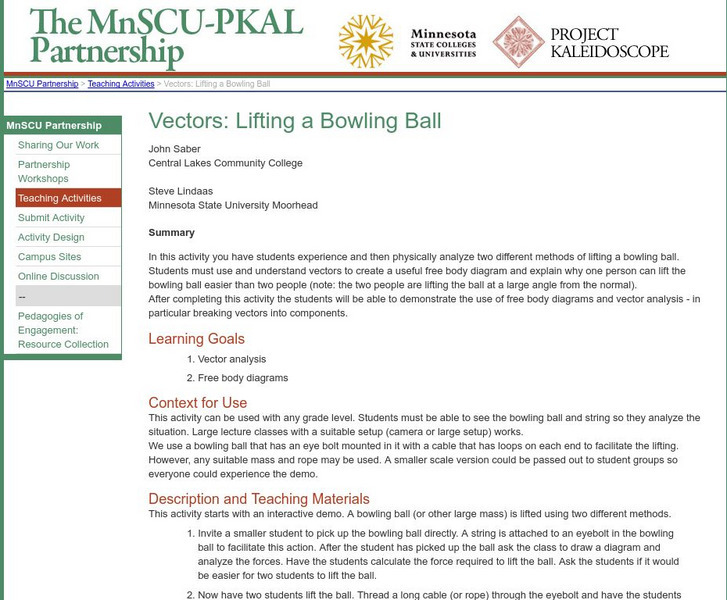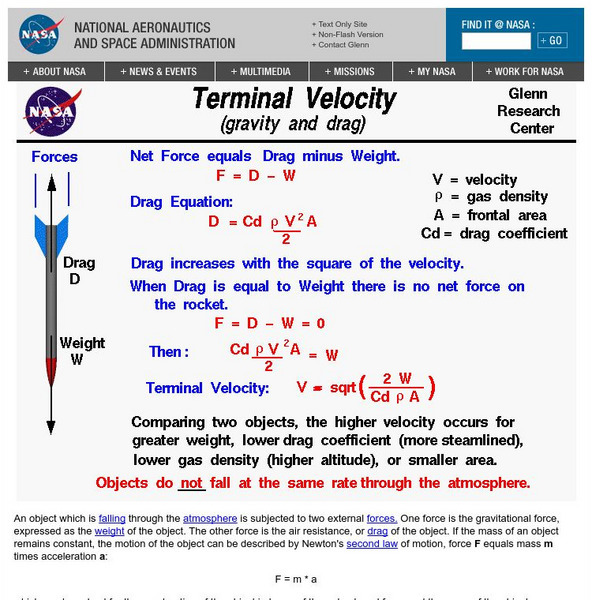University of Colorado
University of Colorado: Ph Et Interactive Simulations: Ramp: Forces and Motion
Explore forces and motion as you push household objects up and down a ramp. Lower and raise the ramp to see how the angle of inclination affects the parallel forces.
University of Colorado
University of Colorado: Ph Et Interactive Simulations: Forces and Motion
Explore the forces at work when you try to push a filing cabinet. Create an applied force and see the resulting friction force and total force acting on the cabinet. Charts show the forces, position, velocity, and acceleration vs. time.
Georgia Department of Education
Ga Virtual Learning: Ap Physics 1: Applications of Newton's Laws of Motion
Students apply Newton's laws to more diverse physical settings where multiple forces from varying origins interact. To aid in condensing the physical setting into mathematical expressions, the free body diagram is used in this module...
TeachEngineering
Teach Engineering: How to Pull Something Heavy
Students measure and analyze forces that act on vehicles pulling heavy objects while moving at a constant speed on a frictional surface. They study how the cars interact with their environments through forces, and discover which...
CK-12 Foundation
Ck 12: Episd: Free Body Diagrams
[Free Registration/Login may be required to access all resource tools.] Students will understand how to read and create free body diagrams.
Science Education Resource Center at Carleton College
Serc: Vectors: Lifting a Bowling Ball
Learners experience and analyze two different methods of lifting a bowling ball. By using and understanding vectors, they create a useful free body diagram to explain why one person can lift the bowling ball easier than two people
Physics Classroom
The Physics Classroom: Free Fall and Air Resistance
This lesson in high school physics on Newton's Second Law of Motion provides a discussion of free fall and air resistance, and answers, "Why do objects which encounter air resistance ultimately reach a terminal velocity?" and "In...
Physics Classroom
The Physics Classroom: Circular and Satellite Motion: Newton's 2nd Law Revisited
In this interactive module, students use free-body diagrams, Newton's second law equation, and circular motion concepts to analyze a variety of physical situations involving the motion of objects in circles or along curved paths.
NASA
Nasa: Beginner's Guide to Aerodynamics
This site from NASA uses a colorful graphic to illustrate why objects reach terminal velocity. Provides equation for the terminal velocity of an object. Graphic is accompanied by a simple explanation.


